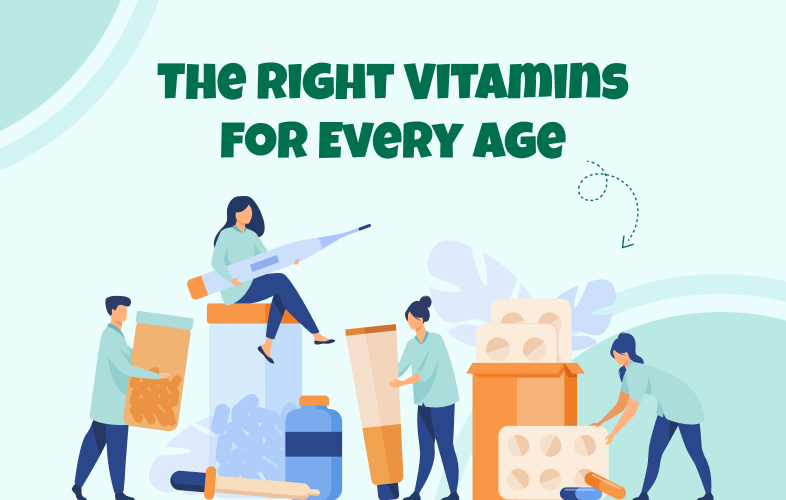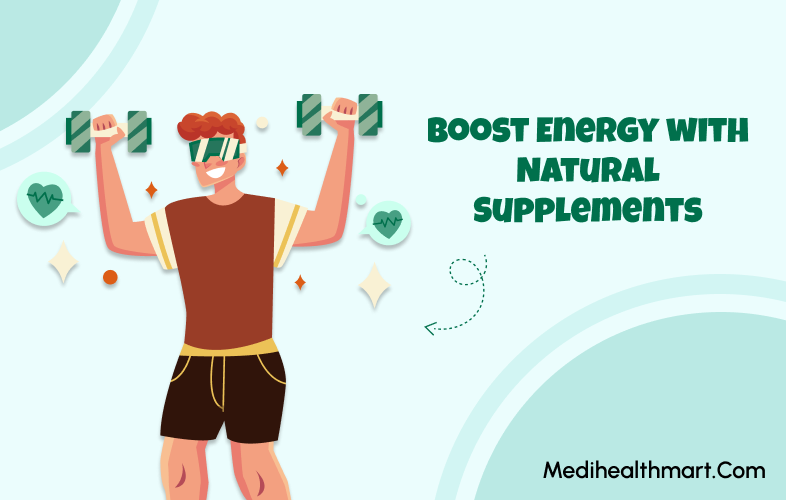If your diet is balanced, you might not need them — but many people still fall short on key nutrients.

You’ve probably heard that vitamins are important — but did you know that your body needs different vitamins at different stages of life?
From infancy to old age, your nutrient needs shift based on growth, activity level, hormones, and overall health. Knowing which vitamins to focus on can help you stay energized, support your immunity, and prevent long-term health issues.
Let’s break it down by age group so you know exactly what your body needs — and when.
Infants and Toddlers (0–3 Years)
Essential Vitamins
Vitamin D: Crucial for bone development
Vitamin A: Supports vision and immune function
Vitamin C: Aids in iron absorption and builds strong gums
Breast Milk & Formula
Breast milk usually provides the basic nutrients, but doctors often recommend vitamin D drops.
Introducing Supplements
Always talk to your pediatrician before giving any supplement. Focus on whole foods once solids are introduced.
Children (4–12 Years)
Growth and Brain Development
This age is all about rapid growth, so nutrients like calcium, vitamin D, and iron are key.
Common Deficiencies
Vitamin D (due to indoor lifestyle)
Iron (especially in picky eaters)
B12 (in vegetarian families)
Best Sources
Eggs, dairy, fortified cereals, leafy greens, and fruits
Teens (13–19 Years)
Hormonal Changes
Puberty demands extra zinc, magnesium, and B vitamins to support physical changes.
Vital Nutrients
Calcium & Vitamin D: For growing bones
Iron: Especially for menstruating girls
B-complex: For energy and mental clarity
Skin and Mood
Vitamin A and zinc help keep acne in check, while B6 and omega-3s support mental health.
Adults (20–40 Years)
Energy and Immunity
Work stress and busy routines call for:
Vitamin C
Vitamin E
Magnesium
B12 for energy
Women’s Health
Folic Acid: For women planning pregnancy
Iron: To combat anemia
Men’s Health
Vitamin D: For testosterone and bone health
Zinc: For fertility and immunity
Middle Age (41–60 Years)
Fighting Fatigue and Stress
B vitamins and magnesium to combat stress
CoQ10 for heart and energy support
Heart and Bone Health
Vitamin K2 and D3 for bone density
Omega-3s and Vitamin E for heart support
Eye Health
Vitamin A and lutein help maintain vision
Seniors (60+ Years)
Bone Support
Older adults often don’t absorb calcium and vitamin D well, making supplementation important.
Brain Function
B12 and folate: Help prevent memory loss
Omega-3s: Support cognitive health
Absorption Challenges
The body produces less stomach acid, so vitamins like B12, iron, and magnesium may be poorly absorbed.
Special Considerations
Pregnant and Breastfeeding Women
Need higher levels of folic acid, iron, DHA, and calcium
Vegetarians/Vegans
Risk of B12, iron, zinc, and omega-3 deficiencies
Plant-based supplements or fortified foods are key
People with Chronic Conditions
Diabetes: May need more B-complex and Vitamin D
Thyroid issues: Watch iodine and selenium levels
Whole Food vs. Supplements
Natural Sources Are Best
Fruits, vegetables, grains, and lean meats offer better absorption and added benefits (like fiber).
When Supplements Are Necessary
During pregnancy, vegan diets, health conditions, or nutrient gaps
How to Choose the Right Multivitamin
Read the Labels
Look for USP or FSSAI-certified brands
Avoid added sugars and fillers
Consult a Doctor
Especially if you take medication or have a health condition
Dangers of Over-supplementation
Toxicity Risks
Too much vitamin A or D can cause liver or kidney damage
Avoid Megadoses
More isn’t always better — stick to recommended daily values
Storing and Taking Vitamins
Storage Tips
Keep away from heat and sunlight
Store in airtight containers
When to Take Them
Fat-soluble (A, D, E, K) with meals
Water-soluble (B, C) on an empty stomach or as directed
Lifestyle and Vitamin Absorption
Gut Health Matters
A healthy gut = better absorption of vitamins
Avoid Bad Habits
Excess caffeine, alcohol, and smoking interfere with absorption
Tips to Stay Consistent
Create a Routine
Take vitamins at the same time every day
Use Tools
Pill organizers, mobile app reminders, or sticky notes on your fridge
Conclusion
Getting the right vitamins at the right age can make all the difference in your energy, mood, and long-term health. Whether you're feeding a toddler, powering through your 30s, or enjoying your 60s — a balanced, age-appropriate approach to vitamins can keep your body strong and your mind sharp.
Remember: the goal isn’t just to live longer, but to live better. And it all starts with the nutrients you give your body every day.
FAQs
It depends. Some kids need vitamin D from birth, while adults may need iron, calcium, or B12 as they age.
Yes, over-supplementation can cause toxicity, especially with fat-soluble vitamins like A and D.
They can be, but gummies may contain more sugar and fewer nutrients. Always compare labels.
Eat vitamins with food, stay hydrated, and keep your gut healthy with probiotics and fiber.














